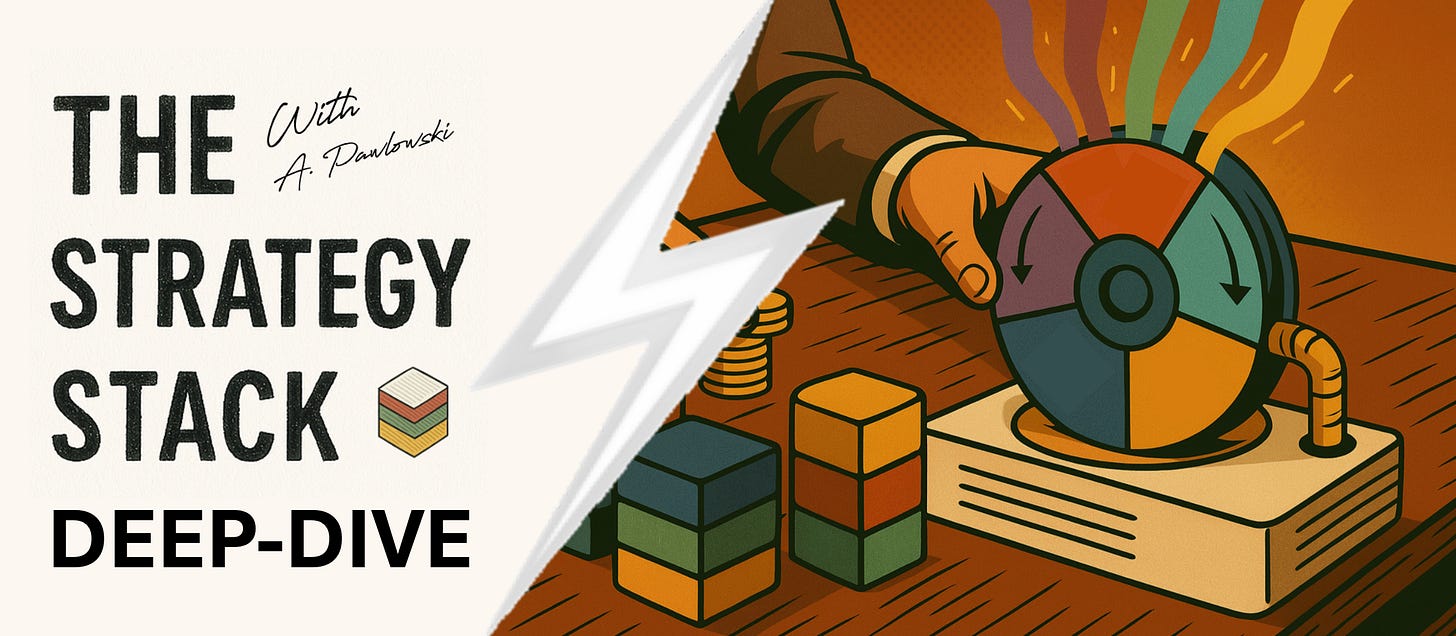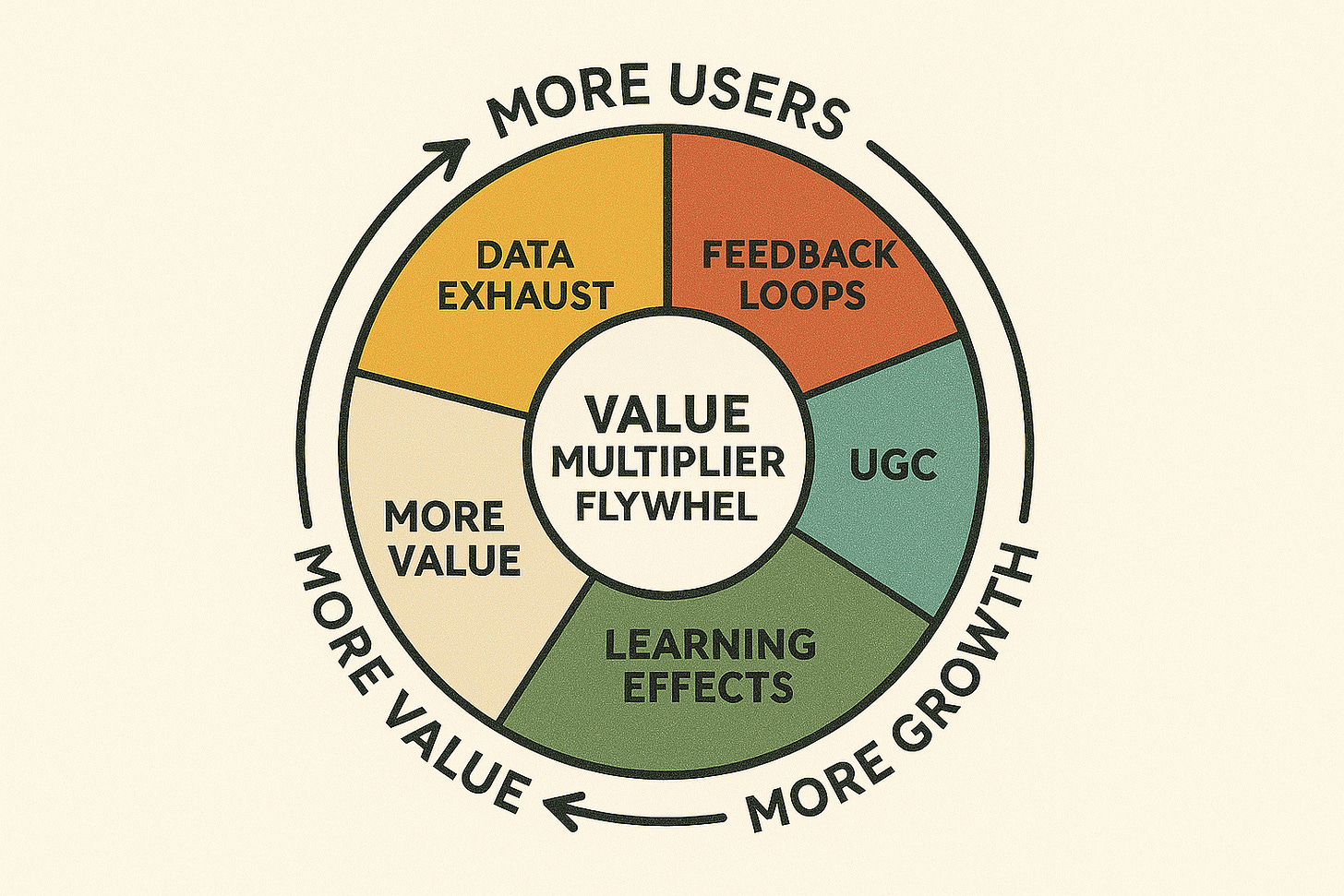How Do Digital Products Multiply Their Value Over Time?
#106: 3.3 Value Multipliers — Data Exhaust, Feedback Loops, User-Generated Content, Learning Effects, Automation
In Chapter 3.2, we explored the Experience Stack — the four interdependent layers that drive value for modern digital products: Utility, Delight, Lock-In, and Ecosystem Value. That framework explained what to build and how to structure a product so that each layer compounds growth.
But even the most beautifully stacked product is not static.
In today’s hyper-competitive landscape, digital product strategy isn’t just about design or development — it’s about acceleration. The key question now is:
How can your product not just grow — but grow faster the more it’s used?
This is where Value Multipliers come in — the invisible engines of product innovation that transform user activity into exponential value.
TL;DR: Value Multipliers for Digital Products
Value Multipliers are hidden forces that make digital products smarter and more valuable with every interaction.
Five essential multipliers drive compounding growth and create powerful product growth loops:
Data Exhaust
Feedback Loops
User-Generated Content (UGC)
Learning Effects
Automation
These forces shift your product strategy from static planning to dynamic evolution — turning engagement into intelligence and growth into momentum.
Table of Contents
Introduction: Beyond the Experience Stack
Why Value Multipliers Matter
The Five Core Value Multipliers
Data Exhaust
Feedback Loops
User-Generated Content (UGC)
Learning Effects
Automation
How Value Multipliers Amplify the Experience Stack
Case Study: Duolingo’s Self-Reinforcing System
Best Practices for Designing Value Multipliers
Strategic Implications for Product and Growth Teams
Closing Thought: Products That Grow Themselves
References
Why Value Multipliers Matter
Most products grow linearly — each new feature or user adds predictable value.
But the most successful companies harness feedback loops and learning effects to turn growth into a self-reinforcing system.
TikTok outpaced legacy media by turning engagement data into real-time personalization.
YouTube scaled infinitely through user-generated content (UGC).
Tesla used data exhaust and automation to make every vehicle smarter after purchase.
Products that rely on paid acquisition plateau.
Products that embed product growth loops scale themselves.
Keep reading with a 7-day free trial
Subscribe to The Strategy Stack to keep reading this post and get 7 days of free access to the full post archives.




